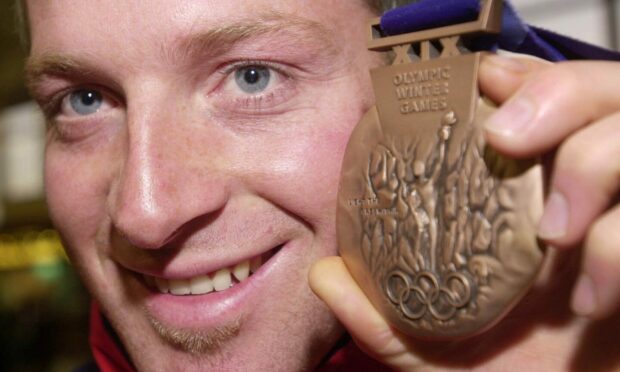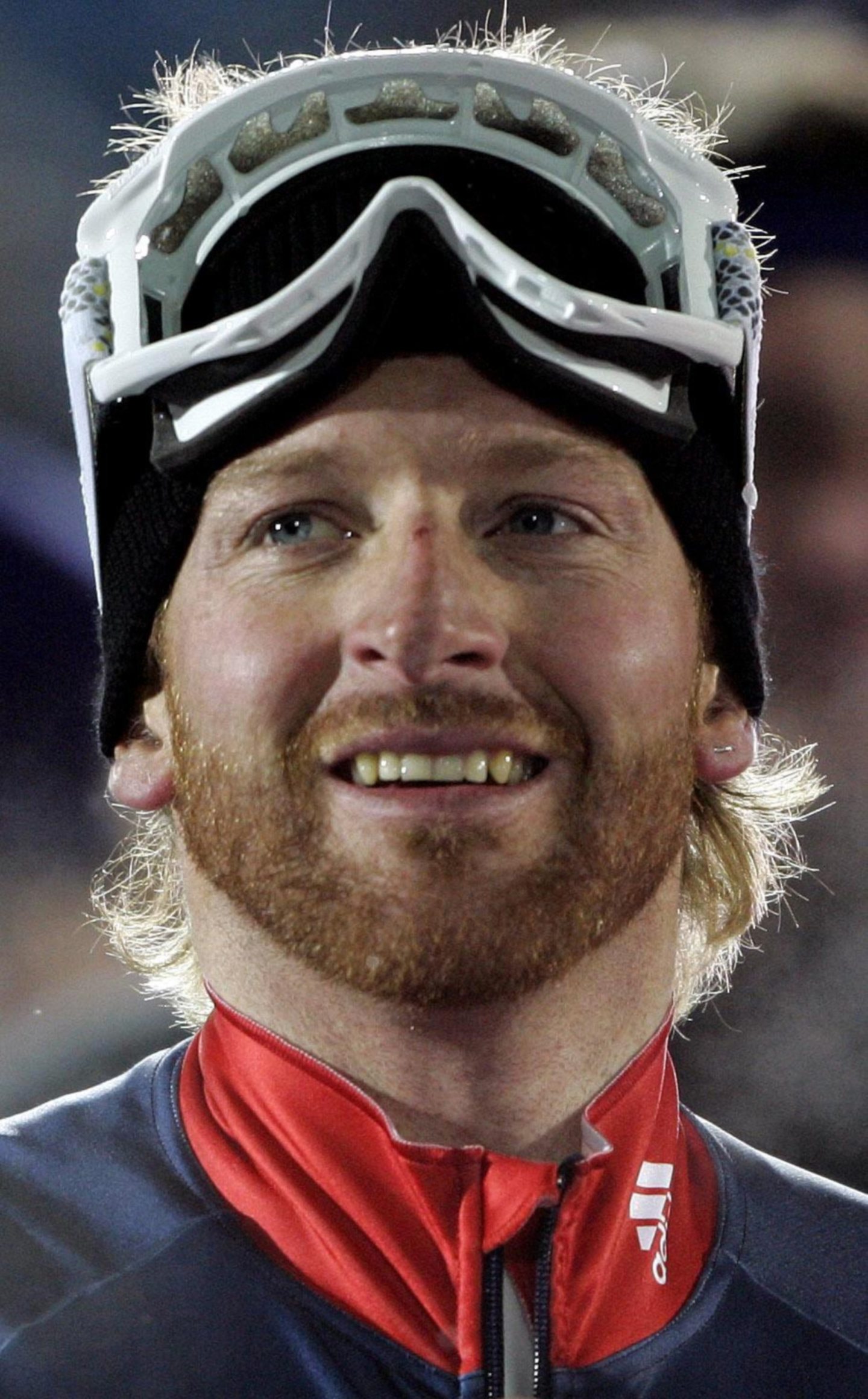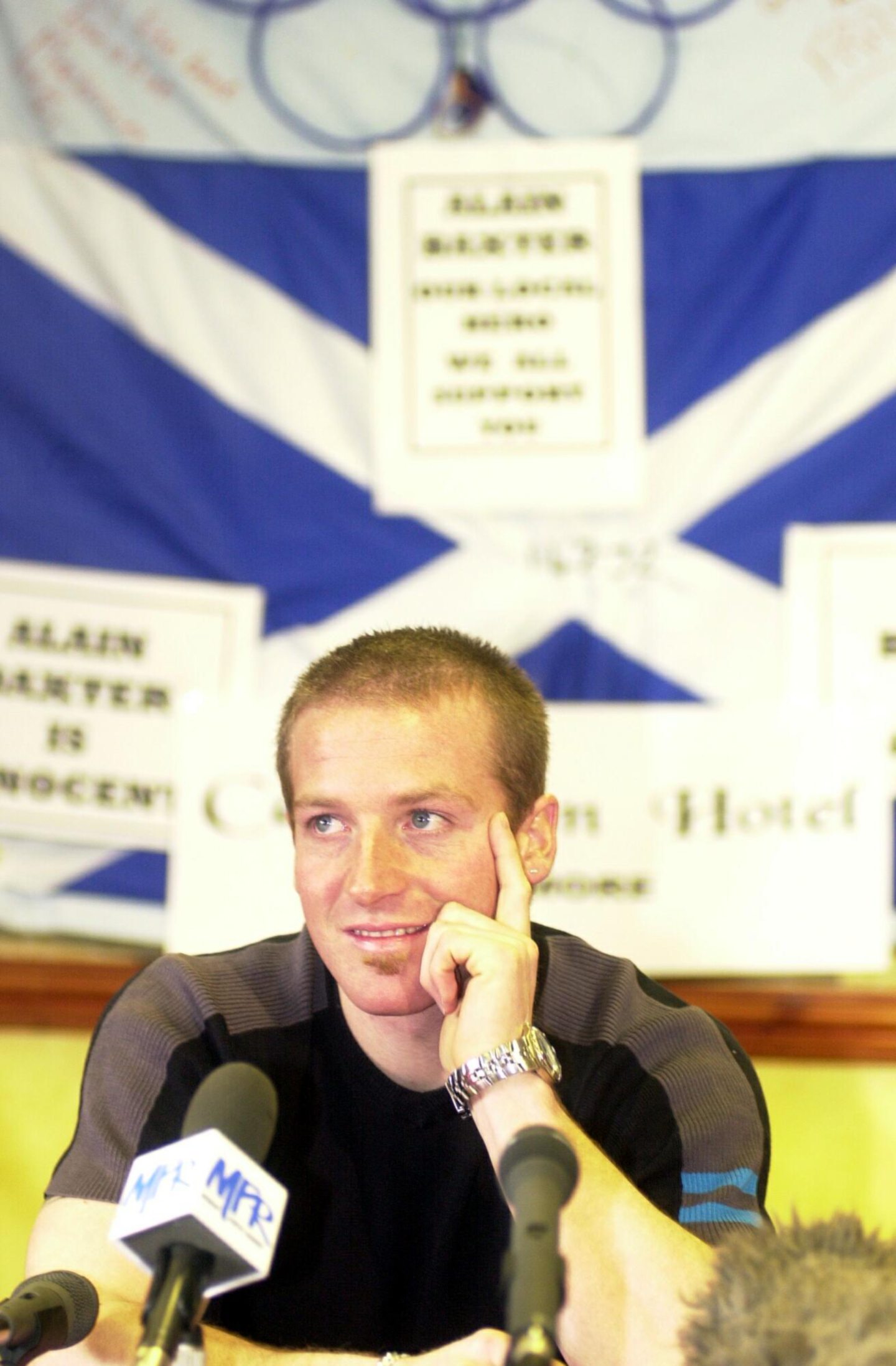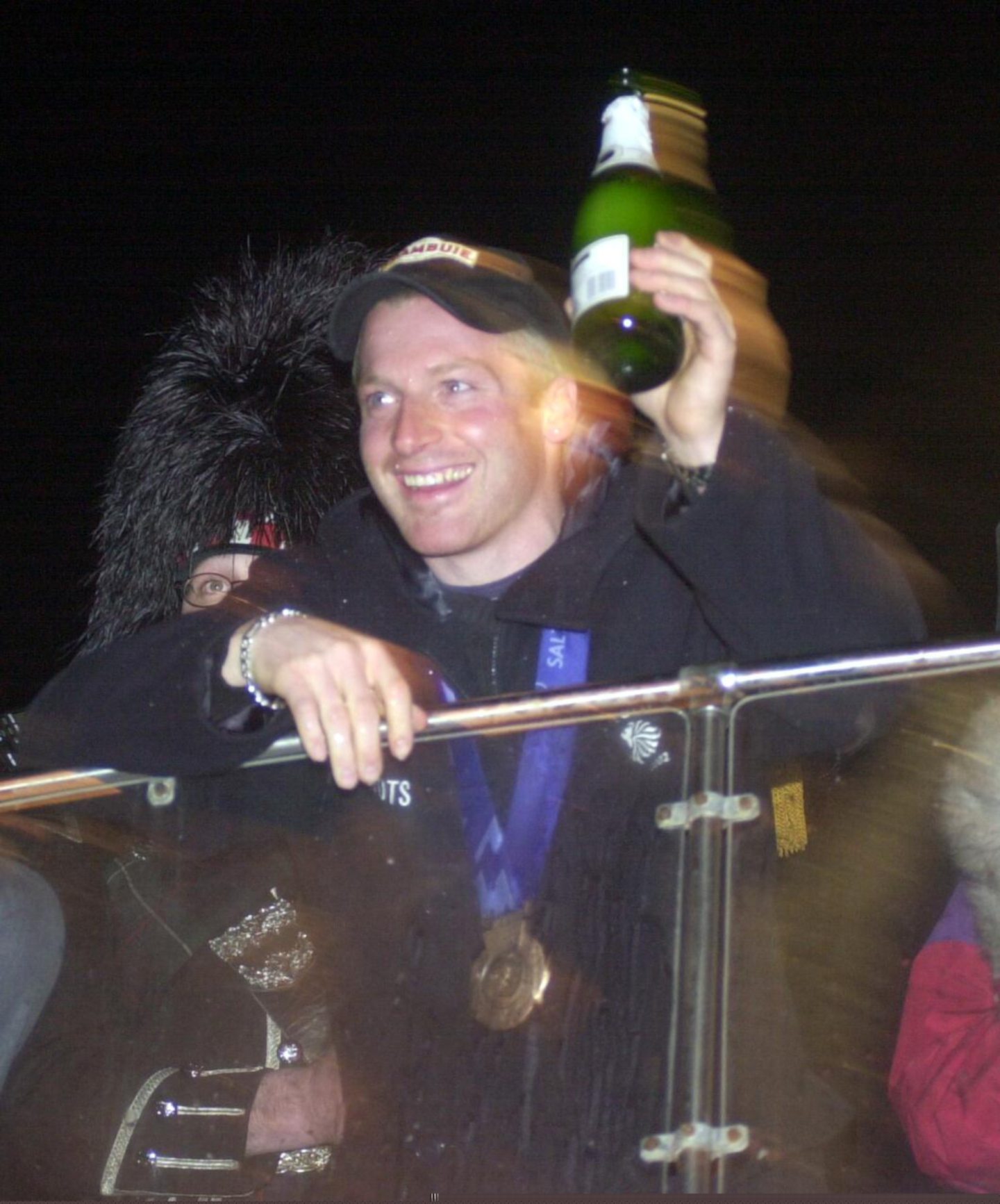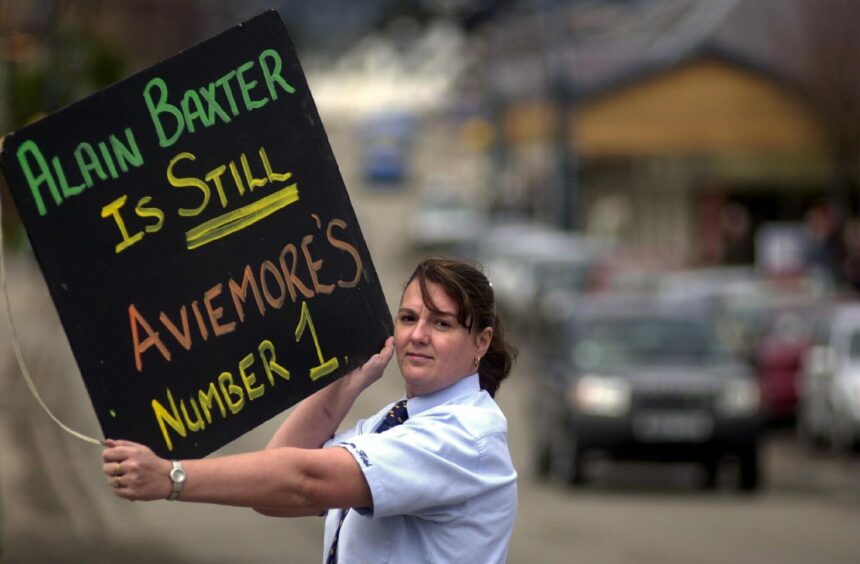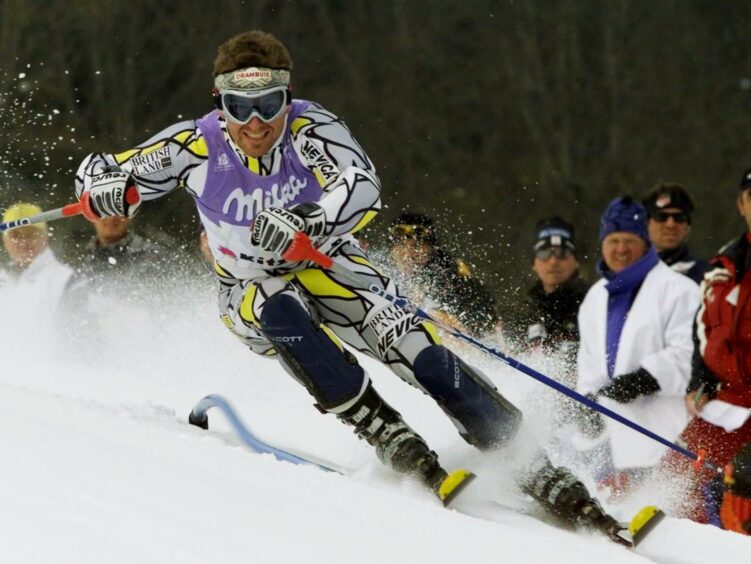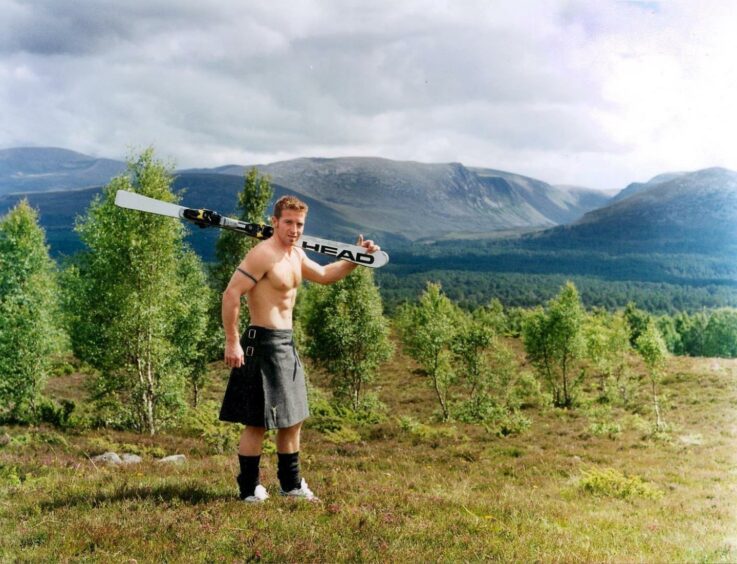It was among the most remarkable achievements in the history of the Winter Olympics but one that left a desperately sour aftertaste.
For decades a variety of valiant Brits had competed against their American and European skiing rivals without winning an alpine medal at the Games.
There was never any shortage of effort or endeavour from Team GB but critics laughed behind their backs at the manner in which the likes of Eddie “The Eagle” Edwards commanded banner headlines for his unavailing attempts to defy gravity rather than flying to new heights.
Yet when Alain Baxter began ploughing a lone furrow in the 1990s, even the cynics had to admit The Highlander was a talented, tenacious performer with a phlegmatic attitude to changing perceptions and recording the sort of results which would make the sport sit up and take notice.
And they certainly did that at the 2002 Winter Games in Salt Lake City when the Scot improved from eighth to third in the men’s slalom and celebrated with an unfettered flourish on that giddy Saturday, after becoming the first-ever British skier to collect a medal on this most imposing of global stages.
It was, as a few of us joked, “Baxter’s Coup”; a bronze that had become a precious piece of history.
But, within a few days, his triumph unravelled and the culprit was an American variant of a well-known decongestant brand.
His success might have shocked many observers but not those who followed the exploits of Alain, his brother Noel, or their cousin Lesley McKenna, who collectively did a superb job of halting the piste-taking about GB skiing.
His influence was akin to what Graeme Obree achieved in cycling at the same time: not only shattering prejudices within his pursuit but bringing these pastimes to a much bigger audience in Scotland during the 1990s.
Prior to the Games, Alain even dyed his hair in the pattern of the Saltire, only for the British Olympic Association to order him to remove it because they regarded it as a “political symbol”.
The move blew up in their faces, though.
When he surged into the reckoning in the midst of a frenetic competition where several of the favourites crashed out of contention, it wasn’t just the Saltire that was still clearly visible, but Alain in the spotlight and hogging the headlines after his terrific display on the slopes.
He had the prize he had coveted but, sadly, it wasn’t in his possession for very long.
Barely had the dust settled on an exhausting series of TV and press interviews and public appearances where he was lavished with praise than Alain found himself at the centre of a drugs controversy.
Indeed, just days after he was standing on the medal podium, news emerged that the 28-year-old had failed a urine test, with trace amounts of methamphetamine – more commonly known as ‘speed’ – in his system.
It subsequently emerged he had taken the American version of the Vick’s Sinex spray, which was significantly more powerful than its UK equivalent.
And, suddenly, what had started as a stunning Vick-tory for the underdog spiralled into something else altogether.
Alain’s mother, Sue Dickson, an experienced ski instructor, was as shocked as everybody else at the revelation, which was plastered over the papers.
The Press & Journal explained how she and Alain had “sat down and racked our brains all night, trying to work out what it could have been” that caused the positive result. ”He just didn’t have a clue.”
She added: “I had just come back from Inverness where I had been at a meeting.
“It was about half past five, six o’clock and Alain was on the phone looking a bit subdued.
The panel is not without sympathy for Mr Baxter, who appears to be a sincere and honest man who did not intend to obtain a competitive advantage in the race.”
CAS ruling
“Five minutes later, he came off the phone and said: ‘Mum, we have got a problem. A big problem.’
“The only thing we could think of was that he had taken something he normally takes but that it was not the same product.
“He had a bit of a cold out there, apparently a lot of people did, but I didn’t know any more than that.
“I have heard talk on the TV of a nasal decongestant but I can’t say.”
However, despite his protestations of innocence – which were all the more compelling, given that the Olympic authorities eventually accepted it had been an honest mistake – Alain knew there were strict protocols around these issues and he realised he could have asked the BOA doctor for guidance.
Gradually, as days passed and it became clear that he would be stripped of his cherished medal, he opened up about his anguish and frustration, even as he spelled out in precise detail how the positive test had happened.
He was a star to us even before the Games.”
Hotel worker Sylvia Thomson
The International Ski Federation accepted his explanation and announced in June they would require him to serve a ban of three months, on the basis that it was a first offence of unintentionally using a prohibited substance.
The case also proceeded to the Court of Arbitration for Sport and skier Benjamin Raich, who was eventually given Alain’s bronze, admitted the whole affair had left him feeling “hollow”.
He looked absolutely genuine when he said he took no pleasure from how his Scottish friend had been treated.
Yet, while it was a distressing situation, there was no doubting that the community in Aviemore stood 100% behind their kinsman when he returned to a hero’s reception towards the end of March in 2002.
I was among the throng who travelled to see him being presented with a symbolic eight-foot gold medal to replace what he had lost and the affection for The Highlander was unalloyed as he met many old allies and colleagues.
‘He’ll always be a champion to us’
Sylvia Thomson, who worked in a local hotel, told me: “We’ve known Alain was a talented athlete and a good person for a long time and we were all thrilled when he performed so well at the Olympics.
“It’s obviously sad what has happened, but it doesn’t take anything away from what we think of him. He was a star to us even before the Games.
“And he’ll always be a champion to all of us who were cheering him on.”
Pete Wishart MP, the SNP’s Westminster spokesman on sport, subsequently tabled a motion in the House of Commons, sympathising with Alain’s plight.
He said: “It is clear that he is the victim of an innocent mistake, and that the IOC have reacted far too harshly.”
Yet impervious to these sort of responses, his quest to regain his medal proved futile.
Yes, the British Ski and Snowboard Federation’s appeal to the Court of Arbitration for Sport was successful and his ban was overturned.
Innocent… but still a bit guilty!
Eventually, though, at the climax of lengthy proceedings which might have satisfied the lawyers but pleased nobody else, the court upheld the IOC’s original decision to disqualify him at the Olympics.
The CAS judgement said: “The panel is not without sympathy for Mr Baxter, who appears to be a sincere and honest man who did not intend to obtain a competitive advantage in the race.”
Nevertheless, they found that an offence had been committed and reached the verdict that they would not reinstate the medal.
All because of a little nasal decongestant – no wonder Alain was scunnered.
In 2014 a housing development in Aviemore was called Baxter’s Court in his honour – a rather strange name when you consider how it was a court that deprived him of that unique Olympic medal 12 years earlier.
But Alain hasn’t let the disappointment fester.
On the contrary, he repeatedly proved his mettle on the international skiing circuit, won the BBC Superstars title in 2005, and also showed his prowess at shinty and track cycling.
He’s still proud of his feats
As he said in an interview in 2018: “It is not a huge thing in my life anymore.
“My story is not all about that. I have been there, done that.
“Obviously that day is still a very, very proud moment. The skiing itself, the result was awesome, amazing. What happened after that tarnished it.
“But when it comes up, every four years or whatever, the feeling that I get from people speaking about it is great, because it is all positive.”
And, to the majority of his compatriots, he will always be the Highlander who broke the mould in British skiing!
